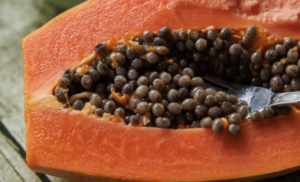10 Best Things to do Before a Workout
When it comes to maximizing your workout performance and enhancing muscle growth and fat loss, the actions you take before hitting the gym can make a significant difference. Whether you’re aiming for improved vascularity, more energy, or better results, the right pre-workout strategies can give you a distinct edge. In this article, we will explore 10 of the most effective methods you can incorporate into your pre-workout routine to optimize your fitness gains.
1. Baking Soda: A Hidden Workout Booster
Many athletes overlook a simple kitchen staple—baking soda. Also known as sodium bicarbonate, this mildly alkaline compound can enhance workout performance, especially for high-intensity activities like weightlifting and sprinting. During anaerobic exercise, the body produces lactic acid, which lowers muscle pH levels, impeding muscle contraction and reducing performance. By consuming baking soda (90 to 135 milligrams per pound of body weight 60-90 minutes before your workout), you can increase blood pH levels, neutralizing lactic acid and improving endurance.
Caution: While some experience significant benefits, others may experience discomfort like nausea or stomach upset. Start with a smaller dose to assess tolerance.
2. Beta-Alanine: A Proven Lactic Acid Reducer
If baking soda isn’t for you, try beta-alanine, a non-essential amino acid that combats lactic acid buildup. By combining beta-alanine with histidine, your body produces carnosine, a compound that buffers acid in muscles and delays fatigue during high-intensity exercises. A dosage of 2-5 grams before your workout can enhance your performance, although you may experience a tingling sensation, which is completely safe and temporary.
3. Protein: Fuel Muscle Growth
Consuming 20-25 grams of protein before a workout can amplify muscle protein synthesis, setting the stage for muscle growth. While protein intake throughout the day is essential, a pre-workout protein boost can maximize anabolic activity, ensuring that your muscles have the building blocks they need during your workout. Whey protein is an excellent choice due to its fast absorption.
4. Warm-Up: Essential for Injury Prevention and Performance
A proper warm-up can drastically improve workout performance and reduce the risk of injury. Avoid static stretching, which can impair strength and flexibility. Instead, focus on raising your body temperature through dynamic movements such as:
Burpees or light treadmill walking for 3-5 minutes
Dynamic stretches like Frankenstein stretches to improve flexibility and muscle activation
Progressive warm-up sets that gradually increase in intensity before lifting heavy weights
This approach will prepare your body for intense training while enhancing muscle flexibility and blood flow.
5. Timing Your Meals: Don’t Overeat Before a Workout
Timing your meals is crucial for avoiding discomfort during workouts. Eating too much, especially greasy or high-fat foods, can cause nausea, cramps, and indigestion, detracting from your performance. Aim to eat your pre-workout meal at least 1 to 1.5 hours before your session. Choose lighter, easily digestible foods like whey protein, eggs, and fruit for the best results.
6. The Power of Napping
Sleep isn’t just for recovery—it can improve workout performance, too. Research shows that even short naps (as little as 25 minutes) can enhance athletic performance, particularly when taken before a workout. A nap boosts alertness and energy, allowing you to push harder during your session.
7. Have a Clear Workout Plan
One of the biggest mistakes people make is showing up to the gym without a solid plan. Going in without a strategy wastes time and hinders progress. A clear plan ensures that you can track your progress and apply progressive overload—gradually increasing the intensity of your workouts to stimulate muscle growth. Planning also helps you target weak areas, pushing past plateaus and continually improving.
8. Track Your Progress
Keep a log of your workouts to monitor progress and avoid stagnation. Track key metrics such as weight used, reps, and sets to ensure you’re progressing over time. A physical notebook or a workout app can help you stay organized and focused without the distractions of your phone.
9. Morning Workouts? Coffee Can Help
Morning workouts can be more challenging due to lower core body temperature, which reduces energy levels and muscle activation. To combat this, consume caffeine (around 3 milligrams per kilogram of body weight) before your workout. Caffeine increases neuromuscular readiness, reversing the downsides of early morning training and enhancing performance.
10. Avoid Antioxidants and NSAIDs Before a Workout
While antioxidants like vitamin C and E and anti-inflammatory drugs like Advil can be beneficial for recovery, they can reduce workout effectiveness if taken pre-workout. These compounds suppress inflammation, which is necessary for muscle growth. Short-term inflammation after exercise stimulates muscle repair and growth. For optimal performance, avoid taking these substances before your workout.
Conclusion
Incorporating these pre-workout strategies into your routine can significantly improve your performance, helping you get the most out of every session. From baking soda to proper warm-ups and the right meal timing, each of these steps plays a crucial role in achieving your fitness goals. Remember to listen to your body and tailor these strategies to fit your individual needs for the best results.
For more tips on workout optimization, training plans, and nutrition, subscribe to our newsletter and explore our comprehensive resources to take your fitness journey to the next level.
Share this content:











